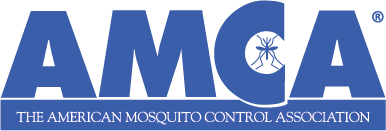Vector Ecologist

Vector Ecologist
DEPARTMENT: Integrated Services
REPORTS TO: Integrated Services Manager
FLSA STATUS: Exempt
Salary Range: $74,050.98 - $86,482.60
CLASS SUMMARY
Under general supervision, the Vector Ecologist conducts and supports various aspects of the District's scientific and operational programs. Responsibilities include collecting, analyzing, and reporting biological and ecological data associated with public health vectors, focusing on mosquitoes and ticks. The role involves field work, vector-borne disease surveillance, pesticide efficacy evaluation, and providing technical assistance to operational and entomology staff. The Vector Ecologist serves as a technical advisor to staff and the public, coordinates with state and local public health officials, and performs related duties as assigned.
ESSENTIAL DUTIES
- Conduct vector surveillance and ecological studies to monitor vector populations and distribution, focusing on mosquitoes and ticks.
- Identify, sort, and process vector specimens for arbovirus testing and other disease surveillance protocols.
- Analyze data from public health partners on vector-borne diseases, prepare reports, and develop recommendations for control measures.
- Create and present technical and scientific reports, maps, graphs, and analyses depicting vector trends and findings.
- Train personnel in surveillance, habitat evaluation, collection techniques, evaluating current conditions for vector disease risk and the identification of invasive vector species.
- Monitor changes in vector and disease ranges and incidence.
- Collaborate with local, regional, and national public health officials on vector-borne disease investigations and response planning.
- Provide guidance to operational staff on pesticide usage, application rates, and strategies for effective vector control.
- Educate the public, schools, and community groups on vector ecology and disease prevention.
- Ensure adherence to all
- Operate and maintain a variety of equipment, including insect traps, microscopes, computers, and district vehicles.
MINIMUM QUALIFICATIONS
Bachelor’s degree from an accredited college or university in environmental health, public health, entomology, biology, ecology, or a related field. Three (3) to five (5) years of related experience in research or field program operations. Equivalent combinations of education and experience demonstrating the ability to perform the job duties will be considered. Preferred qualifications include a graduate degree in public health, entomology, ecology, or a closely related field; experience with GIS tools and advanced statistical analysis; and experience in emergency preparedness and emergency response.
KNOWLEDGE REQUIRED
- Biology, ecology, and epidemiology of vector-borne diseases, particularly mosquitoes and ticks.
- Scientific methods, including vector surveillance, investigative techniques, and data analysis.
- Pesticide application principles, effectiveness, and environmental impact.
- Research techniques, biostatistics, and technical report writing.
- Applicable laws, codes, and regulations related to vector control and public health.
- Customer service principles and communication best practices.
- Safe operation of field and laboratory equipment.
SKILLS REQUIRED
- Plan and implement comprehensive vector surveillance and control programs.
- Conduct research, evaluate program effectiveness, and make data-driven recommendations.
- Communicate complex scientific concepts to both technical and general audiences.
- Prepare technical reports, publications, and presentations.
- Apply mathematical and statistical methods to analyze data.
- Collaborate with internal teams, public health officials, and the public.
- Organize work effectively, set priorities, and meet critical deadlines.
- Utilize modern computer systems and software for data analysis and reporting.
PHYSICAL REQUIREMENTS
Positions in this class typically require stooping, kneeling crouching, crawling, reaching, standing, walking, pushing, pulling, lifting, grasping, talking, hearing, seeing and repetitive motions on wet and uneven terrain. Move and transport up to 50 pounds occasionally and/or use force frequently or constantly to manipulate, lift, carry, push, pull or otherwise move objects. Certain work involves bike riding. Some sedentary work involves maintaining a stationary position. Jobs are sedentary if moving is required only occasionally and all other sedentary criteria are met. Incumbents will be subjected to outdoor work and operation of District vehicles and equipment.safety regulations, policies, and protocols in field and laboratory settings.
NOTE:
The above job description is intended to represent only the key areas of responsibilities; specific position assignments will vary depending on the business needs of the organization.
Affirmative Action / Equal Opportunity Employer
This document is available in alternative formats to individual with disabilities by calling 651-645-9149 or through MN Relay Service at 1-800-627-3529
Additional Info
Job Type : Full-Time
Education Level : Bachelors Degree
Please include your Contact Info : Apply at mmcd.org. Resume and Cover Letter is required
